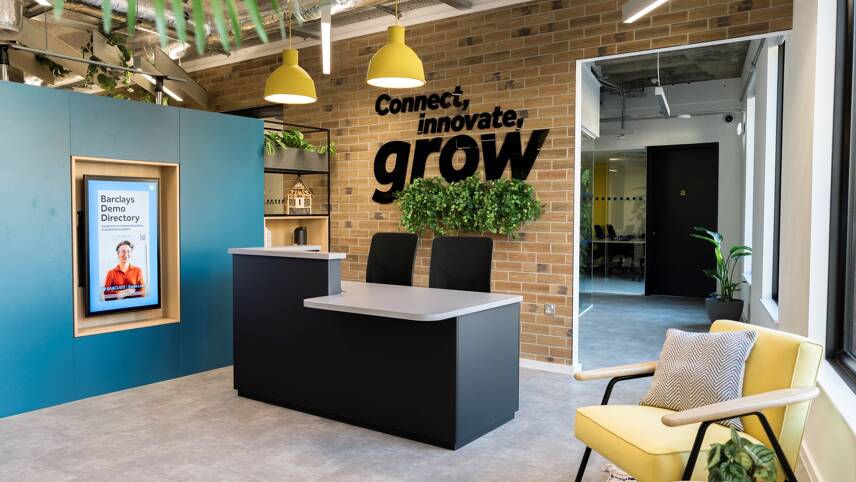Register for free and continue reading
Join our growing army of changemakers and get unlimited access to our premium content

The redesigned space features an expanded capacity, accommodating up to 130 individuals, and a 75% increase in collaboration areas for meetings, events and networking.
Key major upgrades to the building include solar panels by Naked Energy, a hybrid solar technology generating both heat and power.
The structure now boasts energy-efficient double-glazed windows with solar control, roof and cavity wall insulation, and water reduction technologies.
A smart heating, ventilation and air conditioning system, powered by renewable energy sources, has been implemented to regulate the building’s temperature effectively.
Additionally, automatic lighting and window-blind controls have been installed to optimise light levels and quality while improving overall energy consumption.
Barclays UK’s head of sustainability Nick Stace said: “We’re excited to be reopening the doors to our Eagle Lab in Cambridge with a renewed focus as a centre of excellence for climate tech start-ups.
“It was crucial that the retrofit and internal redesign of the building accurately reflected the ethos of the businesses that will use it and we expect it to provide significant energy efficiency improvements, allowing us to take an important step forward in reducing our own operational emissions.”
The bank collaborated with companies from its Sustainable Impact Capital portfolio and the Unreasonable Impact programme, including Save Money Cut Carbon, for their input and expertise in the consultation process for the retrofit plans.
Additional support for SMEs
Climate technology enterprises can also participate in various exclusive pre-seed and bridge programmes organised by Barclays in collaboration with key industry partners, including:
- The Carbon 13 Venture Launchpad, a 20-week virtual programme aimed at assisting pre-seed and early-stage businesses in launching scalable solutions addressing climate-related challenges.
- Bridge programmes, a series of collaborative initiatives with Codebase, facilitating connections between major corporations and startups to exchange knowledge and strategic insights.
- The Rise Start-Up Academy, a 10-week digital-first programme designed to equip early-stage founders with the skills and tools necessary for market readiness. An upcoming dedicated Climate FinTech edition is scheduled to launch later this year, offering support to companies developing innovative solutions to facilitate the global transition to a net-zero future.
Stace added: “We know that startups need more than just a space, which is why we’re also supporting businesses through our climate tech accelerator programmes from the Cambridge Eagle Lab.
“We hope this package of support enables businesses to scale at pace and tackle some of today’s most pressing climate tech challenges.”
Barclays has committed to achieving net-zero status as a business by 2050 through a climate policy that encompasses both its direct operations and externally allocated finance.


Please login or Register to leave a comment.